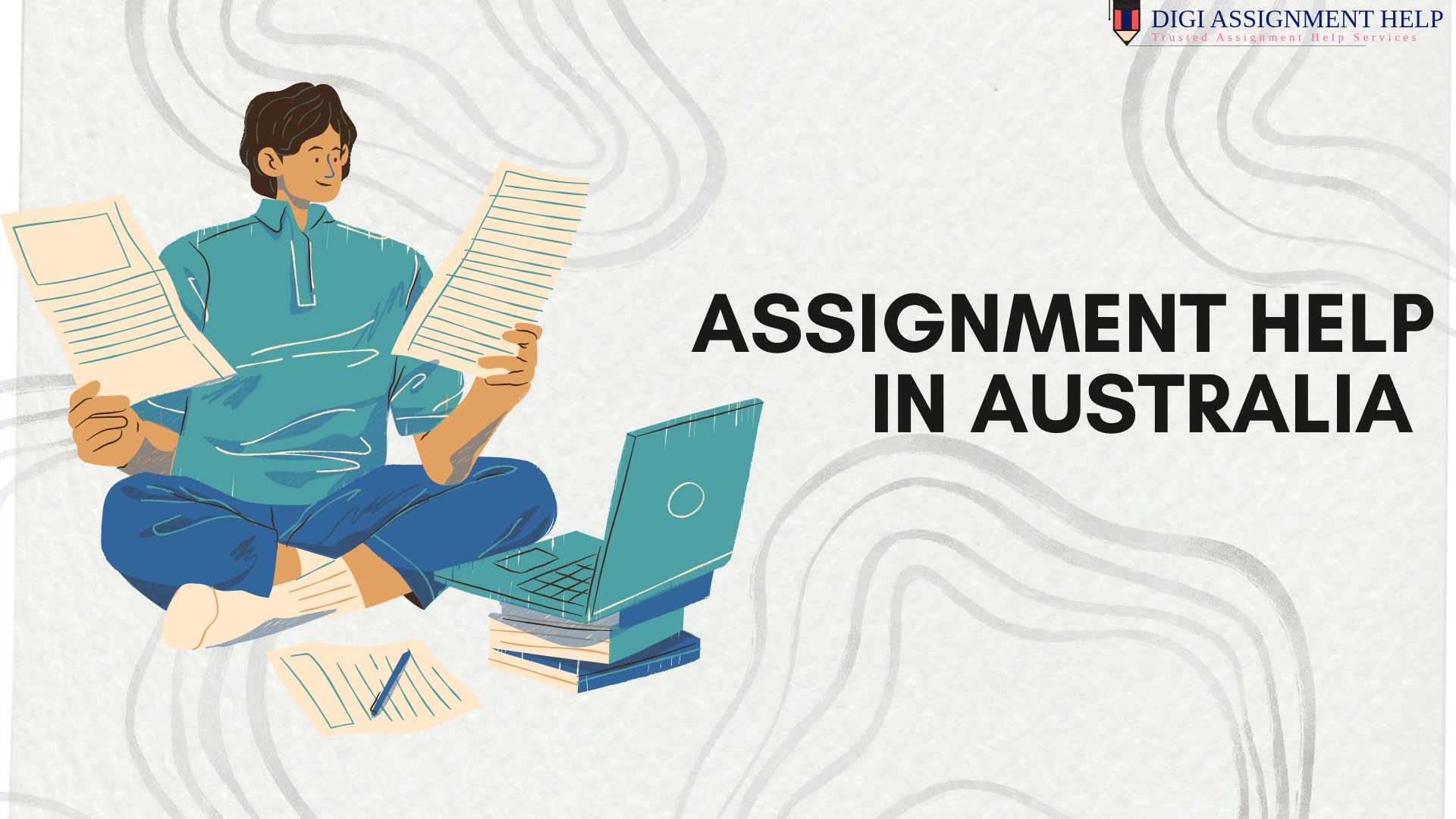Formative Assessment Vs Summative Assessment
 04-Jun-2024 06:00 AM
04-Jun-2024 06:00 AM

Assessment is a crucial element of learning. Assessments play an important role in analysing the learning of students.
It plays a crucial role in education. It offers important information on how well students are learning. It also acts as a check on teachers' skills.
There are multiple ways of assessing a paper. However, Formative and summative assessments are two popular methods. They both are relevant in learning analyses. The methods vary in their objectives, accuracy, and their effects on learning.
This blog will examine the main differences between formative and summative assessment. We will study their uses, benefits, and drawbacks.
The blog showcases the importance of the Australian educational system.
What Is Formative Assessment?
Formative evaluation is a continuous process. It takes place throughout the learning process. Its main goal is to track student progress. It does so by continuously providing feedback.
This technique allows both teachers and students to make improvements. Formative evaluations are usually informal. They can take place in different forms. To analyse the performance one can take exams, group projects, and peer reviews.
Example
Laura is a teacher in Australian universities. She uses formative assessment techniques to analyse the performance of her students. To do so she takes tests on topics they've recently learned. She takes the tests frequently for students to understand better.
These tests assist her in figuring out areas in which students are having difficulty. She observes their performance and then modifies lesson plans accordingly.
Furthermore, she provides constructive feedback. This step helps students to recognise their mistakes and get better at them.
Uses
In Australia, formative assessment is frequently employed at all stages of education. It assists students and teachers from elementary to postsecondary level. It assists highly in subjects like science, language arts, and maths.
These call for ongoing skill growth. Formative assessments are a useful tool for teachers too. They support individual learning and measure student understanding. They also assist in making informative decisions.
Benefits
-
Enhances Learning: It focuses on providing feedback. It makes it easier for students to recognize their mistakes. They can make changes and build learning gaps.
-
Teaching Guidance: This allows educators to modify their methods. They are able to better understand the needs of their students. Students who are actively involved in their education. They can work on self-evaluation and reflection.
Disadvantages
-
Time-consuming: It can be a time-consuming process. It requires teachers to put in constant effort and time. Then only they can provide useful feedback.
-
Subjective: A teacher's own understanding matters. The Results may not be as reliable. In many cases, they are influenced by the teacher's prejudice. This restricts the space for new ideas.
-
Resource-Intensive: Extra resources and training could be needed for successful results. It can lead to higher costs for evaluation.
What Is A Summative assessment?
Summative Assessment takes place at the end of the term. It could be a year or a semester. Its main objective is to assess student learning. It does so by comparing it with a reference point or benchmark.
There are multiple ways of conducting summative assessments. Some of them are End-of-term projects, cumulative essays, standardized tests, and final exams.
Example
Rose High School is a renowned school in Australia. To assess the learning of students throughout the year it conducts summative assessments. For year 12 students it will conduct a standardised test like a Higher school certificate exam.
This test will evaluate their overall comprehension. It helps to check how much students have learned about the course material. It gives a final score that affects their admission to further colleges.
Applications
In Australia, summative evaluations are utilized at every educational level. It helps to assess student progress and establish learning objectives.
They are essential in making important decisions. They help with granting certifications and assessing student progress. It also plays a role in enhancing the curriculum.
Benefits
-
Objective evaluation: It is a great tool to assess students' learning in a consistent manner.
-
Accountability: It holds educators accountable for their performance. It also keeps educational institutions responsible for maintaining the good performance of their students.
-
Motivates Students: Students are motivated when they are pushed to strengthen their knowledge. With proper feedback, they can also work on their final assessments.
Negative Aspects
-
Stressful: Students might not be able to take the feedback well. they might face the pressure to perform and score well.
-
Limited Feedback: Many teachers slack while offering feedback. It hinders students' future development and learning.
-
One-time assessment: It may not be a reliable indicator of a student's long-term progress. It is conducted once a year. Hence analysing the learning can be challenging.
Formative and Summative Assessment Comparison
Objective
The primary purpose of formative assessment is to track and enhance learning. It happens continuously and is not subjected to a period. Hence it is an ongoing process.
On the other hand, the latter seeks to assess and evaluate the learning based on the end result. It is a one-time process.
Timing
-
Formative Assessment: It is performed at several points during the teaching session. It happens in the form of regular tests, essays and quizzes.
-
Summative Evaluation: It takes place at the completion of a lesson. It generally takes place in the form of a standard test.
Feedback
-
Formative assessment: It Offers ongoing and instant feedback. It helps with quick learning.
-
Summative Assessment: It Offers final comments. It often allows less space for change.
Australian Formative Assessment Examples
Some of the places where the assessment is used are:
-
Classroom Tests: Teachers can conduct quick tests to assess understanding of recent classes.
-
Peer reviews: involve students giving helpful criticism to each other's work.
-
Observation and Discussion: Throughout classes, teachers should keep an eye on students' comprehension. they should focus on their participation.
Australian Summative Assessment Examples
-
The National Assessment Program: It administers examinations of reading and numeracy to children in Years 3, 5, 7, and 9. This is a standard test which takes place at the end of the term.
-
Final Exams: These are assessments to check cumulative knowledge. They are given at the end of a term or year.
-
Major Projects: These are final-year collective projects or dissertations. These projects are based on credit which determines students' performance.
Selecting the Appropriate Evaluation Method
Educators or educational institutions should analyse their goals. The objectives and situations influence the final decision about the evaluation method.
Formative assessment helps with continual development and individualized learning support. It lets teachers modify their pedagogical approaches. It also gives students the feedback they require to advance.
However, summative evaluation is essential for figuring out overall performance. It assists in making critical choices regarding the direction of students' education and the impact of courses.
Combining the Two Types of Assessments
Summative and formative evaluations are often combined to assess the best results. They are used to verify learning results. These evaluations are used by educators in Australia to direct daily instruction and foster student growth.
Role Of Digi Assignment Help
Digi Assignment Help is an online platform for writing assignments for Australian students. The platform is committed to providing all Australian students with thorough academic support.
It provides a variety of services that are intended to improve your academic achievement.
Our experts lessen stress and help to cope with the syllabus. We are here to help you with your complicated assignments or comprehending any particular subjects. Our assignment writing services are here to provide top-notch services which boost your scores!
We provide:
-
Professional Assignment Writing: We offer expert assignment writing services for a range of subjects. We extend our services across all academic levels. Our staff of expert writers can help with essays, research papers, dissertations, case studies, and more.
They are familiar with Australian universities' academic requirements. Every assignment is customised to fulfil your unique needs. We guarantee unique, high-quality answers that match the expected standards. -
Constant Help and Support :We offer 24*7 support realising that a doubt is known at no time. Our customer support staff is accessible around the clock.
We respond to your questions, and provide you with assignment updates. Our technical experts guarantee that students receive ongoing assistance. We facilitate efficient time management of your workload and deadlines. -
Editing and Proofreading Services:We have a team of Professional editors and proofreaders. These services assist you in turning in flawless papers that are free of errors.
We carefully proofread your work to ensure that all spelling, grammar, punctuation, and formatting are correct. We also make sure that your work adheres to the necessary citation styles. This improves the overall calibre and understanding of your submissions. -
Plagiarism and Quality Assurance:We are committed to providing Original content. Our plagiarism detection tools help us make sure that no assignment contains any plagiarized text.
Every assignment is also examined by our quality assurance team. We ensure that it follows the guidelines properly. We focus on accuracy and coherency. You will receive authentic and high-quality projects. We are here to satisfy your academic requirements.
In summary
Digi Assignment Help is a great option for Australian students looking for dependable and inclusive academic support. We help students to meet their academic objectives.
Our professional writing services and round-the-clock support, ensures you get your papers on time. Digi Assignment Help is available to assist you with any type of academic task ensuring your scores take a positive turn!



























